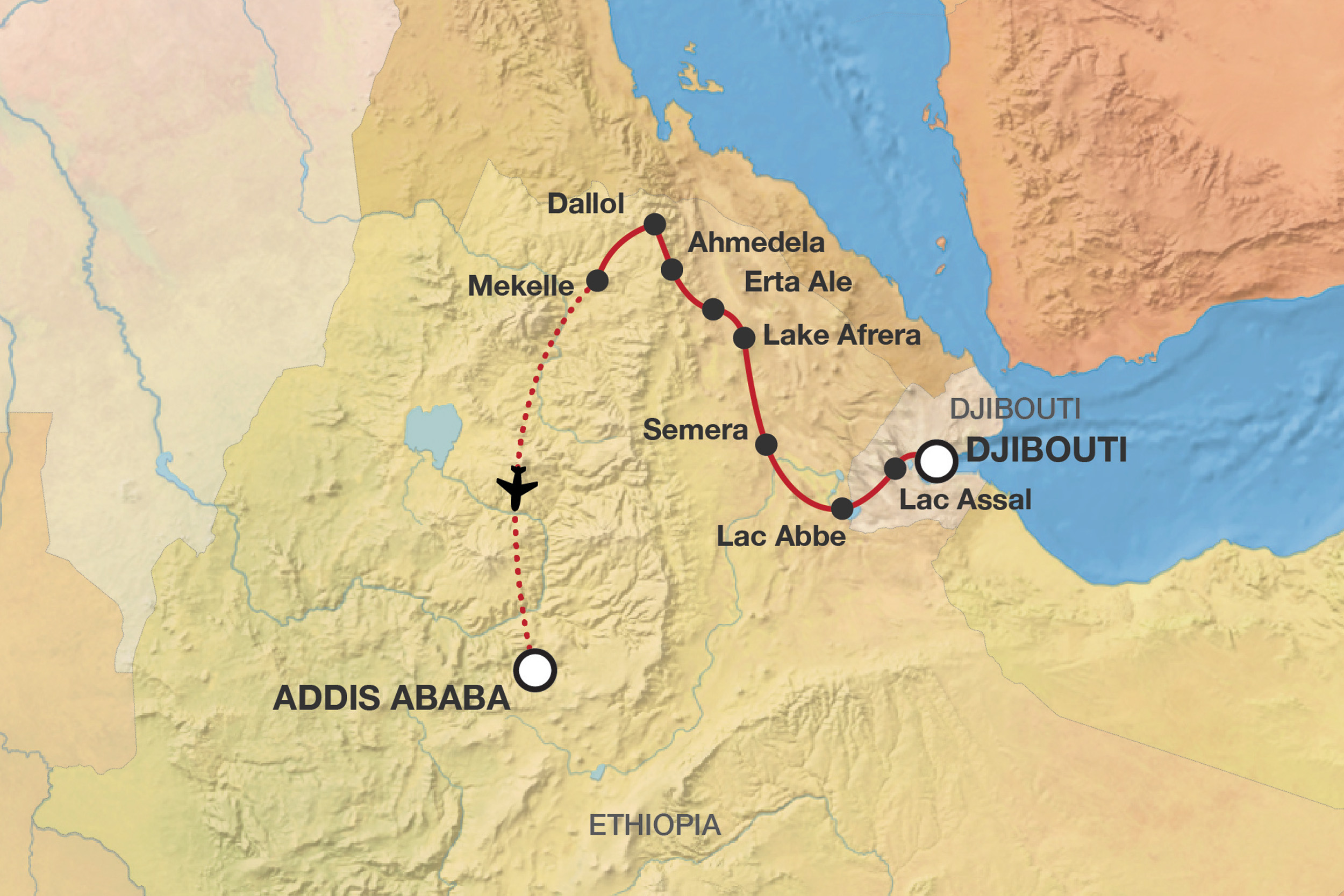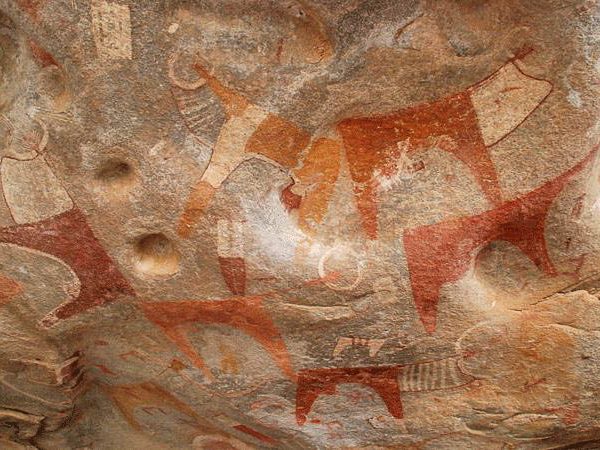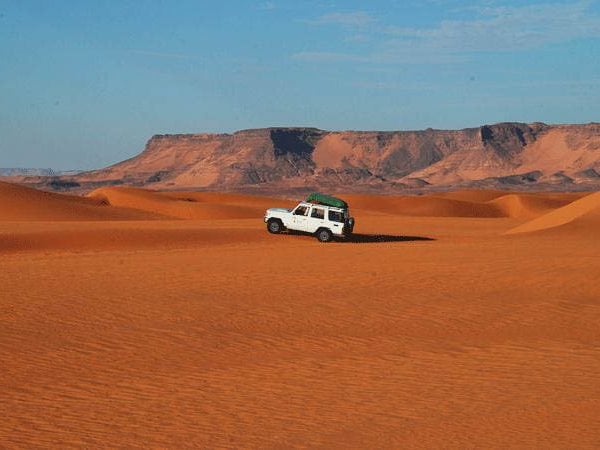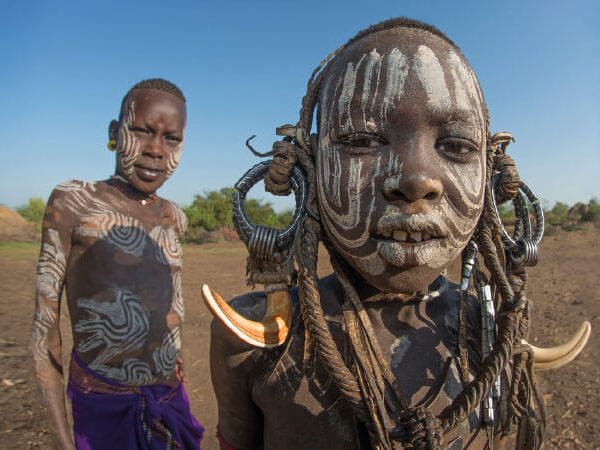Day 2 - Lac Assal
We head to the crater lake of Lac Assal – the lowest point in Africa (-150 m), as well as the most saline body of water in the world (up to 40%). One of Africa’s most impressive natural phenomena, its spectacular colours and unusual crystalline formations give it an almost alien appearance. We may see Afar herders or salt collectors on its shores. Return to Tadjoura for the night. Overnight beach bungalows. (BLD)
Day 3 - Lac Abbe
Drive to Lac Abbe, stopping en route to meet local people and arriving in the late afternoon to watch the sun set over one of Africa’s most enigmatic and breathtaking regions. Overnight Lac Abbe Camp. (BLD)
Day 4 - Lac Abbe – Semera
This morning we visit the extraordinary landscape of Lac Abbe, a desolate salt lake with hundreds of limestone chimneys surrounding it. This landscape is so other-worldly that the classic science fiction film ‘Planet of the Apes’ was filmed here. From here we cross into Ethiopia and head to Semera, where we stay for the night. Overnight Kuriftu Hotel or similar. (BLD)
Day 5 - Lake Afrera
Drive to the turquoise Afrera Lake, surrounded by palm trees. The Afrera salt lake is home to local Afar people harvesting salt flakes using traditional methods, and in the lake is the world’s lowest lying island in the world, Frachetti island (-102 m). Overnight camping. (BLD)
Day 6 - Erta Ale
Drive to Mount Erta Ale through the Afar desert – Erta Ala is one of the highlights of this expedition, and is one of only five permanent lava lakes in the world. We hike 3 hours to the rim, while our equipment and water is carried by camels – we wait for sunset to see one of the world’s most spectacular sights when the red lava in the crater lights up the sky. Overnight camping. (BLD)
Day 7 - Ahmedela
Drive to Ahmedela along unmarked sandy tracks, passing Afar settlements along the way. Ahmedela is the base for exploring the salt mines and seeing the salt workers and camel caravans. Overnight camping. (BLD)
Day 8 - Dallol - Mekelle
Drive to the hot springs at Dallol, composed of different minerals along with sulphurs and potash and create spectacular colours. Dallol is renowned as being the hottest inhabited place on earth; between 1960 and 1966 an average annual temperature of 34°C (94°F) was recorded. You are likely to see the long ‘caravane de sel’ – camel trains loaded with salt. Later we drive to Mekelle for the night. Axum Hotel or similar. (BLD)
Day 9 - Addis Ababa
Fly back to Addis Ababa. The rest of the day is spent exploring the city before you transfer to the airport for your flight home. (BLD)
Please note that if you are not arriving internationally with Ethiopian Airlines there is a supplement for this tour. This is because the domestic flights are significantly less expensive for travellers who use Ethiopian Airlines for their outbound international flights. As most of our travellers fly with Ethiopian, the tour price is based on this. Please enquire for further details.
What's included?
What's not included?
Visas
Most travellers will require a visa to enter Ethiopia and you can apply for an e-visa (https://www.evisa.gov.et/) which is valid for entry at the land border.
As of December 2020, Djibouti no longer offers visas on arrival and you must obtain this before you travel. E-visas are available at this link: https://www.evisa.gouv.dj
Visa regulations can change however and so we recommend that you contact your nearest embassy for the most up to date information.
Health and vaccinations
We are not medically qualified and so we recommend that you speak to your doctor or nearest health professional for advice concerning recommended vaccinations. For more advice on vaccinations you can also visit https://travelhealthpro.org.uk/countries.
Yellow Fever vaccination certificates are not required for Ethiopia unless you are coming from a Yellow Fever endemic zone.
If you have any physical limitations that might impact your ability to participate in the planned tour activities, it’s essential that you make us aware as soon as possible so that we can discuss this with you.
Insurance
It is a condition of joining our tours that you have suitable travel insurance in place, and we cannot accept travellers without insurance. All policies differ in terms of what they will cover, but as a minimum you need medical and health cover, which will cover you for the whole time that you are away. Most policies will also include cancellation cover, which will cover you if an unforeseen circumstance obliges you to cancel your trip. We recommend that you obtain your insurance as soon as you book your trip.
Please note that government travel warnings often affect the validity of your travel insurance, and you should check this with your insurance company.
Arrival and departure taxes
There are no arrival or departure taxes applicable for either Ethiopia or Djibouti.
Money
The local currency in Ethiopia is the birr, and in Djibouti the franc. It is best to bring US dollars for exchange purposes. You should bring clean and unmarked notes that have been issued after 2009, otherwise it can be difficult to exchange them.
It’s easy to change money in Ethiopia, either at banks or the hotels and your guide can assist with this. There are also an increasing number of ATMs in larger towns. However these are not always reliable and so it is best to think of them as a back up rather than a main means of obtaining money. Also do bear in mind that you are travelling through remote parts of both countries ñ we recommend changing money in Djibouti Town, and then again when you cross into Ethiopia, and your guide will be able to help you with this.
Credit cards are accepted in larger hotels and better restaurants (usually in Addis) but are not commonly accepted elsewhere.
Local conditions
When travelling to some of the destinations we offer you need to bear in mind that things won’t always work here as we’re used to them working at home. Travelling in underdeveloped and untouristed destinations requires both patience and a sense of humour. There may be problems with infrastructure, attitudes may be different, and maintenance may not be as high a standard as we would always like, but this is very much part and parcel of travelling in such a place.
In addition, roads throughout the parts of Africa that we visit are often poorly maintained (if at all!) and distances between key sites of interest can be long. Travelling in Africa can be tiring, hot and dusty at times, and inevitably it can be frustrating. While there are some issues that we are able to solve, others are intrinsic to the countries that we travel through, and you should be aware that many of the countries that we operate in cannot be compared to others on the continent that have better infrastructure – for example the popular tourist destinations of east and southern Africa.
Although travelling in these countries can at times be an ‘unpolished’ experience, this is all part of the adventure. We aim to resolve any issues as quickly as possible, and putting up with a pothole (or ten) is undeniably worth it for the amazing sights and cultural experiences you will encounter along the way.
Travel advice
We keep a very close eye on the travel advice issued by the UK Foreign and Commonwealth Office so that we can keep you up to date with any warnings. At the time of writing the FCO does not advise against travel to the parts of Djibouti or Ethiopia that we visit on this tour.
This relates to advice from the British government – other nationalities need to check the stance of their own governments.
Please note that the information contained above is highly susceptible to change, and while we endeavour to keep up to date we recommend that you use this as a guide only. Should you have any questions, please don’t hesitate to contact us.
